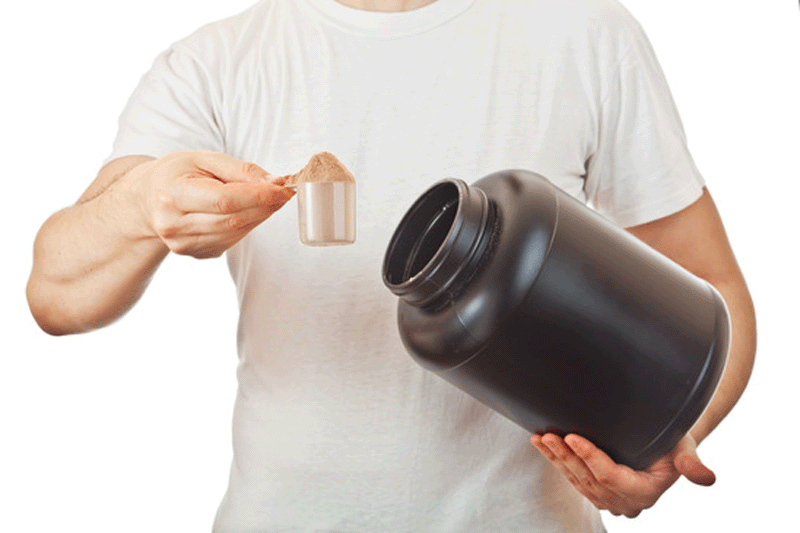7 Mind Blowing Reasons to Boost Your Protein Intake

Boost Your Protein Intake!
Benefits of an Increased Protein Intake
You may have heard some conflicting information on protein intake and whether or not it can have a positive effect on the success of any weight loss or fitness program. In fact, there’s darn good reason for you to seriously consider increasing your protein consumption—whether you are a dieter, an athlete or bodybuilder, or merely someone who is concerned about his or her health.
As you’ll see, there’s a growing body of clinical evidence that shows that increased protein intake helps stave off hunger, aids in weight loss, and helps build and/or protect lean body mass, or muscle.
1. Increased Protein Intake Aids Weight Loss
If you’re looking to lose weight, you’ll be interested to learn that recent studies indicate protein actually increases post-meal thermogenesis, or fat burning (see Journal of the American College of Nutrition, Vol. 21, No. 1, 55-61 2002).
2. It Appears to Protect Lean Muscle Mass When Dieting
Research also shows that dieters who obtain a larger percentage of their calories from protein (as opposed to those obtaining a greater percentage from carbs), tend to lose more fat, and less lean muscle mass (see Metabolism 43 (12):1481-7., 1994).
Another study (see Curr Opin Clin Nutr Metab Care. 2003 Nov;6(6):635-8) had this to say…
“Additional protein consumption results in a significantly lower body weight regain after weight loss, due to body composition, satiety, thermogenesis, and energy inefficiency, while the metabolic profile improves.”
Other studies further emphasize the correlation between satiety, protein intake and weight management (see Am J Clin Nutr. 2008 May;87(5):1558S-1561S). And this one (see Nutrition & Metabolism 2008, 5:8) showed that a whey protein supplement…
“… increases fat loss and spares lean muscle in obese subjects.”
If you’re an athlete or a bodybuilder, increased protein intake is essential.
3. Protein is Great for Post Workout Recovery
Protein is critical for post-work out recovery and anabolism (see Journal of the International Society of Sports Nutrition 2007, 4:18) and it stimulates muscle-protein synthesis (see Am J Physiol Endocrinol Metab 292: E71-E76, 2007).
4. Protein can Stimulate an Insulin Response
One popular source of protein — whey protein — has been shown to trigger the release of insulin, a critical factor for muscle growth.
5. It’s Anti-Catabolic, Too!
Casein protein, another milk based protein, has been shown to have anti-catabolic properties—that is, it reduces muscle protein breakdown (see PNAS December 23, 1997 vol. 94 no. 26 14930-14935).
6. Cool Therapeutic Effects: Suppresses Tumor Growth
From a general health perspective, milk proteins have been shown to suppress tumor growth (see Curr Pharm Des. 2007;13(8):813-28) and release glutathione, a powerful and potent antioxidant (see J Cyst Fibros. 2003 Dec;2(4):195-8).
7. More Cool Therapeutic Effects: Reduces Blood Pressure and Stimulates the Immune System
Certain casein peptides have been discovered that can reduce blood pressure, function as carriers for minerals, stimulate the immune system, and inhibit the growth of tumor cells (see Haque, Emily and Chand, Rattan (2006). Milk protein derived bioactive peptides. 26 November 2008).
Protein Side Effects and Dangers
What about the supposed “dangers of a high protein diet” that you’ve been hearing about from main stream nutritionist?
There’s isn’t a single medical study indicating this the case. None of the experts making such claims have been able to dredge up a single example of renal failure—or any other danger—as a result of increased protein consumption. I certainly could not find any evidence that an increased protein intake posed any dangers to “normal” individuals not suffering from renal disease. In fact, I found the contrary (see Nutr Metab (Lond). 2005 Sep 20;2:25)…
“…we find no significant evidence for a detrimental effect of high protein intakes on kidney function in healthy persons after centuries of a high protein Western diet.”
One review (Contrib Nephrol. 2007;155:102-12) proposed…
“… that the concept that protein restricted diets decrease the risk of developing kidney disease in the general population is not supported by the scientific literature.
This one, which investigates a higher level of protein intake for athletes (see Appl Physiol Nutr Metab. 2006 Dec;31(6):647-54) indicated…
“…that higher protein diets have quite consistently been shown to result in greater weight loss, greater fat loss, and preservation of lean mass as compared with “lower” protein diets.”
Kidney Issues? Tread Carefully and See Your Medical Professional
Of course, there are issues when increased protein is NOT a good thing — anyone with less than optimal kidney function needs to be concerned about increasing their protein intake without first consulting with a medical professional.
And as Elissa points out in this blog post, diets rich in cereals/grains, animal proteins, and salt (like the typical North American diet) can result a condition known as chronic metabolic acidosis (CMA). That aside, the available evidence indicates an elevated protein consumption is not dangerous.
What the Bottom line on Protein Intake?
Increasing your protein intake is smart move. Yes, whether you are looking to lose weight, build muscle, or maximize your health.
Protein, of course, can come from lean “whole food sources” like chicken, beef, fish, turkey, pork, certain legumes, and so on.
Consuming lean sources of protein rich foods is a great way to ramp-up your protein intake.
Or, you may wish to investigate taking a protein powder supplement, which offer convenience and some additional benefits. Click here to read more about your options for a protein powder.


